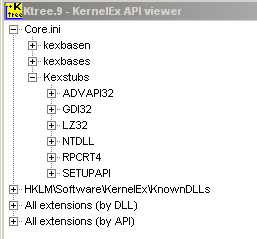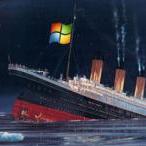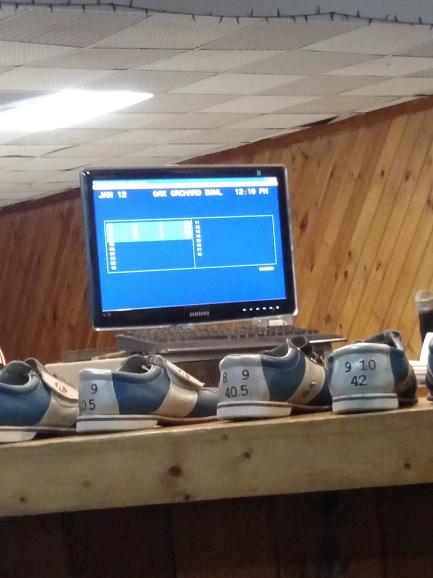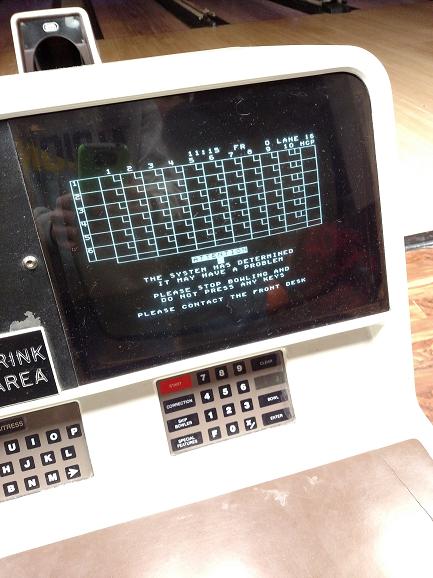Leaderboard
Popular Content
Showing content with the highest reputation on 11/23/2020 in all areas
-
3 points
-
1. Make sure you have latest KernelEx Core Updates (24) installed. 2. Verify Kexstubs with jumpers Ktree. Latest is Kstub823.dll The Kexstubs entry must be in the core.ini: --- No OS override --- [BASE] contents=Kexstubs,std,kexbasen,kexbases Kstub824 desc=Base enhancements (api fixes + extensions) --- Legacy modes for older registry settings and Ktree9 --- [DCFG1] inherit=BASE contents=Kexstubs,std,kexbasen,kexbases desc=Legacy Base enhancements 3. Does FF 35 work on your machine? 4. Try FF 45.9 or 47.02. FF48 starts without UI first. Can you see it in the taskbar? 5. Check with the DependencyWalker, if you caught all dll's.1 point
-
Hey all, Just wanted to post here to show that the latest version of the official osu! client now loads with the extended kernel (before it'd throw many errors relating to kernel calls). I'll soon be testing other more and lesser known programs and reporting successes/failures Great work win32 for giving Windows Vista the justice it deserves1 point
-
New build of BOC/UXP for XP! Test binary: MailNews Win32 https://o.rthost.win/boc-uxp/mailnews.win32-20201121-355db4de-uxp-a89597b5d-xpmod.7z BNavigator Win32 https://o.rthost.win/boc-uxp/bnavigator.win32-20201121-355db4de-uxp-a89597b5d-xpmod.7z source repo (excluding UXP): https://github.com/roytam1/boc-uxp/tree/custom-older * Notice: the profile prefix (i.e. parent folder names) are also changed since 2020-08-15 build, you may rename their names before using new binaries when updating from builds before 2020-08-15. -- New build of HBL-UXP for XP! Test binary: IceDove-UXP(mail) https://o.rthost.win/hbl-uxp/icedove.win32-20201121-id-eed0566-uxp-a89597b5d-xpmod.7z IceApe-UXP(suite) https://o.rthost.win/hbl-uxp/iceape.win32-20201121-id-eed0566-ia-41157bf-uxp-a89597b5d-xpmod.7z source repo (excluding UXP): https://github.com/roytam1/icedove-uxp/tree/winbuild https://github.com/roytam1/iceape-uxp/tree/winbuild for UXP changes please see above.1 point
-
New build of Serpent/UXP for XP! Test binary: Win32 https://o.rthost.win/basilisk/basilisk52-g4.7.win32-git-20201121-ffb32e0-uxp-a89597b5d-xpmod.7z Win64 https://o.rthost.win/basilisk/basilisk52-g4.7.win64-git-20201121-ffb32e0-uxp-a89597b5d-xpmod.7z source code that is comparable to my current working tree is available here: https://github.com/roytam1/UXP/commits/custom IA32 Win32 https://o.rthost.win/basilisk/basilisk52-g4.7.win32-git-20201121-ffb32e0-uxp-a89597b5d-xpmod-ia32.7z source code that is comparable to my current working tree is available here: https://github.com/roytam1/UXP/commits/ia32 NM28XP build: Win32 https://o.rthost.win/palemoon/palemoon-28.10.2a1.win32-git-20201121-86b6cb4c2-uxp-a89597b5d-xpmod.7z Win64 https://o.rthost.win/palemoon/palemoon-28.10.2a1.win64-git-20201121-86b6cb4c2-uxp-a89597b5d-xpmod.7z Official UXP changes since my last build: - Issue #1280 - Follow-up: Get rid of HPKP pinning mode. (5ef801fdc) - Issue #1391 - Disable DOM Filesystem/dirpicker APIs by default. (5262e01a4) - Issue #1682 - Remove vibrator DOM interface and support code. (13f505539) - [libjar] Fix inflation logic. (870fd86e1) - Issue #1683 - Update Brotli lib to 1.0.9 (d86f49ba5) - Issue #1683 - Update libjar module. (2d8013526) - [packager] Optimize archive accesses. (6d2e301d9) - [toolkit] Add optimized UI code format option (511ac54ca) - Revert "[toolkit] Add optimized UI code format option" (8aa935553) - Issue #1684 - Remove global UA override preference and supporting code. (18df01eb5) - Revert "Issue #1684 - Remove global UA override preference and supporting code." (3abb8e28a) - [UA] Change default compatibility mode version to 68.0 (6bc5748b0) - Issue #1667 - Part 1: Define _pthread_self if it is not already defined in jemalloc (b6d909ad1) - Issue #1667 - Part 2: Add MacOS 11.0 Big Sur widget compatibility This involves refactoring the vibrancy and OpenGL/Pixel rendering changes contained in the following Mozilla meta bugs: 1496823 and 1491445 Also add Big Sur to the features tests and update popup menu look and feel based on Mozilla bug 1656301. (fa5aba4c0) - Issue #251 - Move chrome packaging options to ac configure (ecb827c5c) - Merge pull request 'Get rid of HPKP pinning mode leftovers' (#1680) from adesh/UXP:cleanup-hpkp-pinning-mode into master (241f06bc5) - Issue #1667 - Part 3: Fix OpenGL load and runtime issues on Big Sur This fix is included in NSPR 4.27 and Mozilla bug 1652330. Also put a main thread check in the cocoa draw callback. (2f3cf3c8c) - Issue #1686 - Align a keybinding definition with the others (85dc118aa) - [gfx][Skia] Hold mutex while accessing shared SkImage data. (31a64578e) - [xpcom] Fix GetWindowsFolder storage (bd061ac04) - [parser] Make the refcount of nsHtml5OwningUTF16Buffer atomic. (4782e8dfa) - [xpcom] Don't use realloc for shrinking nsTArrays when allowRealloc is false. (887fface5) - Merge pull request 'Resolve various issues on Big Sur' (#1685) from dbsoft/UXP:master into master (577148710) - [http] Use a copy of nsHttpConnectionInfo. (1864bbec2) - [dom] Remove attributes from descendants when setting sanitized style. (eefaee906) - [sfnt] Fix heap buffer overflow. (76d62cfc3) - Merge pull request 'Align a keybinding definition with the others' (#1687) from vannilla/UXP:align-key-definition into master (074d19477) - [webrtc] Only init WebRtcAec callbacks once (a89597b5d) No official Basilisk changes since my last build. Official Pale-Moon changes since my last build: - Back-end branch pointer up date (Unstable 2020-11-02) (75097f19e) - Back-end branch pointer update (Unstable 2020-11-14) (07d3f0a17) - Update back-end branch pointer and leverage libjar improvements. (86b6cb4c2) My changes since my last build: - skipped Pale-Moon changes about libjar for better compatibility on hacking around for users1 point
-
uhjuju! Thank you very much, it has worked! What would be of us without this magnificent forum! about:config media.gmp-manager.url https://aus5.mozilla.org/update/3/GMP/%VERSION%/%BUILD_ID%/%BUILD_TARGET%/%LOCALE%/%CHANNEL%/%OS_VERSION%/%DISTRIBUTION%/%DISTRIBUTION_VERSION%/update.xml Replace %VERSION% by 51.0 leaving it like this... https://aus5.mozilla.org/update/3/GMP/51.0/%BUILD_ID%/%BUILD_TARGET%/%LOCALE%/%CHANNEL%/%OS_VERSION%/%DISTRIBUTION%/%DISTRIBUTION_VERSION%/update.xml Go to Tools + Add-ons + Plugins In the Primetime Content Decryption Module provided by Adobe Systems, Incorporated go to options. On automatic updates mark no. Exit the plugin menu and re-enter. Now next to "no" appears "check for updates". Press and the problem is solved.1 point
-
The version I got to work was Realtek AC'97 WDM A3.62. I'm using it in Qemu, the VXD crashes MS Hover!1 point
-
Besides Teracopy i also use KillCopy. It has two separate profiles - for network and local transfers. Also you can limit the speed and change the buffer size during transfers. There is resume on crash/abort. Handy to make hard links too. And it preserves the timestamps unlike Teracopy.1 point
-
Have you checked this? https://www.raymond.cc/blog/12-file-copy-software-tested-for-fastest-transfer-speed/ Results of tests are in a graph on page 2: https://www.raymond.cc/blog/12-file-copy-software-tested-for-fastest-transfer-speed/2/ jaclaz1 point
-
The Soyo motherboard in question has a 2002 or 2003 bios and I'm sure there are no socket-478 P4 motherboards ever made that were not LBA-48 bit capable straight from their original factory V1 bios. I could have formatted the drive as a single volume (single primary partition) even booted directly into DOS, but if I wanted to test the ability to read and write to logical sectors far out beyond the 137 gb point I assume that by creating 4 volumes as I did that the volumes are assigned fixed sector positions (start and end) and thus writing directly to the last volume would have beyond the 137 gb point.1 point
-
Then it would appear that M$ has not actually discontinued SHA-1 based endpoints, but is merely discriminating against Vista/XP/2000.1 point
-
1 point
-
1 point
-
Why Windows Vista isn't bad Windows Vista: it's the OS everyone loves to hate. Still today, several years later, I see it being criticized for having high system requirements and being a memory hog. But is it really that bad? I think not. In this article I am going to explain why I believe Windows Vista deserves more respect and really isn't bad, and hopefully convince some of you XP and Windows 7 fans that Vista is a very viable OS, especially by today's standards. So let's begin. Windows Vista, when released, introduced a completely different and totally new kernel and driver model than that of its predecessor, Windows XP. Introducing a new kernel caused compatibility issues with legacy applications, and an entire new driver model caused a number of driver compatibility problems. I'll admit, Windows Vista truly wasn't ready when it was released in its RTM version, as it still caused heavy disk I/O which drastically decreased the life of hard drives and degraded performance. There were also issues with OEMs, that hadn't yet released drivers for Vista or released drivers that didn't work well with the new driver model, and OEMs forced Vista onto hardware that barely met the system requirements for Windows Vista. They also stuffed it full of OEM bloatware which caused it to be even slower for users. However, in this article I'm going to explain how those problems were fixed and are now non-existent in Windows Vista. The Rise of Vista: Service Pack 1 released In 2008 with the release of Vista SP1, tons of issues were resolved, and speed was greatly improved. Some improvements made in Service Pack 1 were: Faster copy times, heavy disk activity was toned down dramatically, and tons of apps and drivers had finally caught up with Vista, but there were still some issues. Vista, even with SP1, was still lackluster and needed some work, to hopefully get people off Windows XP for good. There was still the slow boot up and shut down time, as well as a few instability issues. But soon, Microsoft was going to fix that in its next Service Pack for Windows Vista. Vista at its peak: Service Pack 2 released With the release of Service Pack 2 in April 2009, Vista was finally what I would call ready, and Microsoft had managed to finally advance the OS far ahead of Windows XP. Improvements in Service Pack 2 were: even faster file copy times, boot up time improved dramatically, stability greatly improved, memory (RAM) usage was toned down, UAC was refined to be less annoying (while keeping the OS secure), and support for newer types of hardware was added, including support for blue-ray discs. At this stage, Windows Vista was, in my opinion, a worthy successor to Windows XP, and was almost perfect. However, the hate still raged on in most people's minds. Why people still hate Windows Vista Vista is still hated by the majority today, and I believe I know why. Early adopters that tried Vista didn't give it a second chance. They tried it once, either hated it or loved it, and never looked back at it again. So they just hopped back to the trusty old Windows XP and waited for the next version of Windows to arrive, that being Windows 7. Despite service packs improving the OS, people still didn't give Vista another chance, and forever concluded in their minds that it was a failure. I've also had people tell me that they hate Vista because they "heard bad things about it". And a lot of people just jumped on the Vista hating bandwagon without even trying it, which in my opinion, isn't a smart thing to do. Why Windows Vista deserves more respect Windows Vista introduced many new technologies that are critical to Windows 7's existence. Some people may not realize this, but Windows Vista was critical to Windows 7's success. Had Windows 7 in its form today been released instead of Vista, Windows 7 would've received criticism for the same reasons as Windows Vista. It also had high system requirements (identical to Windows Vista's in fact) compared with XP, and it retained a similar kernel (only slightly refined from Vista) and an almost identical driver model introduced by Windows Vista, which makes it a complete departure from Windows XP as well. Compatibility issues would've existed, and Windows 7 would've been installed on underpowered hardware, just as Vista was, and users would've complained about slowness, and jumped back to XP, just as they did with Vista; which is why I believe Vista deserves more respect. Why Windows Vista is much better than Windows XP Some people might have trouble swallowing this, but Windows Vista truly is a large step up from Windows XP, in many ways. One large criticism of Windows XP was security, and despite Microsoft improving the security by releasing Service Pack 2 for XP in 2004, Vista really abolished that problem at a much higher level. With a stronger Windows Firewall and User Account Control that was refined over time to be less annoying with updates, Windows Vista is much more secure than Windows XP. Windows Vista is also better optimized for modern hardware, and takes better advantage of multi-core processors than Windows XP, and has a full-fledged 64 bit version. XP had a 64 bit version, but it was based on its server counterpart, Windows Server 2003, which caused compatibility issues and was not widely adopted. Windows Vista also has more secure networking, and with Service Pack 1, tests showed Windows Vista outperformed Windows XP in the file copying area, just as Microsoft had claimed to improve with the update. Windows Vista also introduced DirectX 10, which delivered much richer gaming graphics and better performance than DirectX 9.0c which was the last version available for Windows XP. Windows Vista also introduced support for USB 3.0, which was much faster and more efficient than USB 2.0 that was available on Windows XP. Although, most USB 3.0 devices will still work—in a technical sense—with Windows XP because they’re backward-compatible. However, they will fall back to USB 2.0 compatibility and transfer data at about one-tenth of the potential speed of USB 3.0. Also, Windows Vista introduced a much faster, more efficient, and more convenient search. Open any explorer window or open the start menu in Vista, and there's most likely search present there. In Windows XP, all you have out of the box is the classic search from previous versions of Windows. And although it works, it's still not as convenient or as efficient as it is in Windows Vista, because you only have it all in one place, rather than throughout the system like in Windows Vista. Although it really wasn't necessary, Windows Vista introduced a very elegant desktop composition engine known as Windows Aero, which looked, to me anyways, much more appealing than the Luna interface that was in Windows XP. And it was refined to be less resource intensive with Service Pack 2. Windows Vista: a viable choice for many, even today Windows Vista was truly ahead of its time, and by today's standards, it still pretty much meets everything most people would want from an operating system. It's very similar to Windows 7. It works well on modern hardware, as it's optimized for multi-core processors, and works with most of the latest third party software. And it also supports 64 bit computing very well, just as well as Windows 7 in fact. And much better than Windows XP did. I'm not saying we should all just switch to Windows Vista, but if you're still using Windows XP, upgrading to Vista with Service Pack 2 wouldn't at all be a bad idea if your hardware can handle it. Conclusion Well I'll leave you with this, and I hope I helped some of you realize why Windows Vista was really a misunderstood operating system. Today, Windows Vista is much better than it was in its infancy, and is no longer "crap" like people have claimed that it is. As long as you run it on compatible hardware and keep it up to date, it will run just fine. In fact, I use Vista (or server 2008 as a workstation rather, the same as vista pretty much) as my main OS, and it runs just fine. And I don't understand that if someone that likes Windows 7 tried Vista today with Service Pack 2 installed on modern hardware, how they could still hate it- but that's just my take on this. If you know why please explain. Thanks very much for reading! -2008WindowsVista1 point
-
Found XP running at the front desk at the local bowling alley. I tried several times to get a picture but my phone Reeeeeeeally does not like to focus on screens at a distance more than point-blank. (I will try again eventually) Heres the best I got: The little screens over by the lanes that show your score appear to be running MS-DOS. The first lane we tried to use was evidently having an issue:1 point












